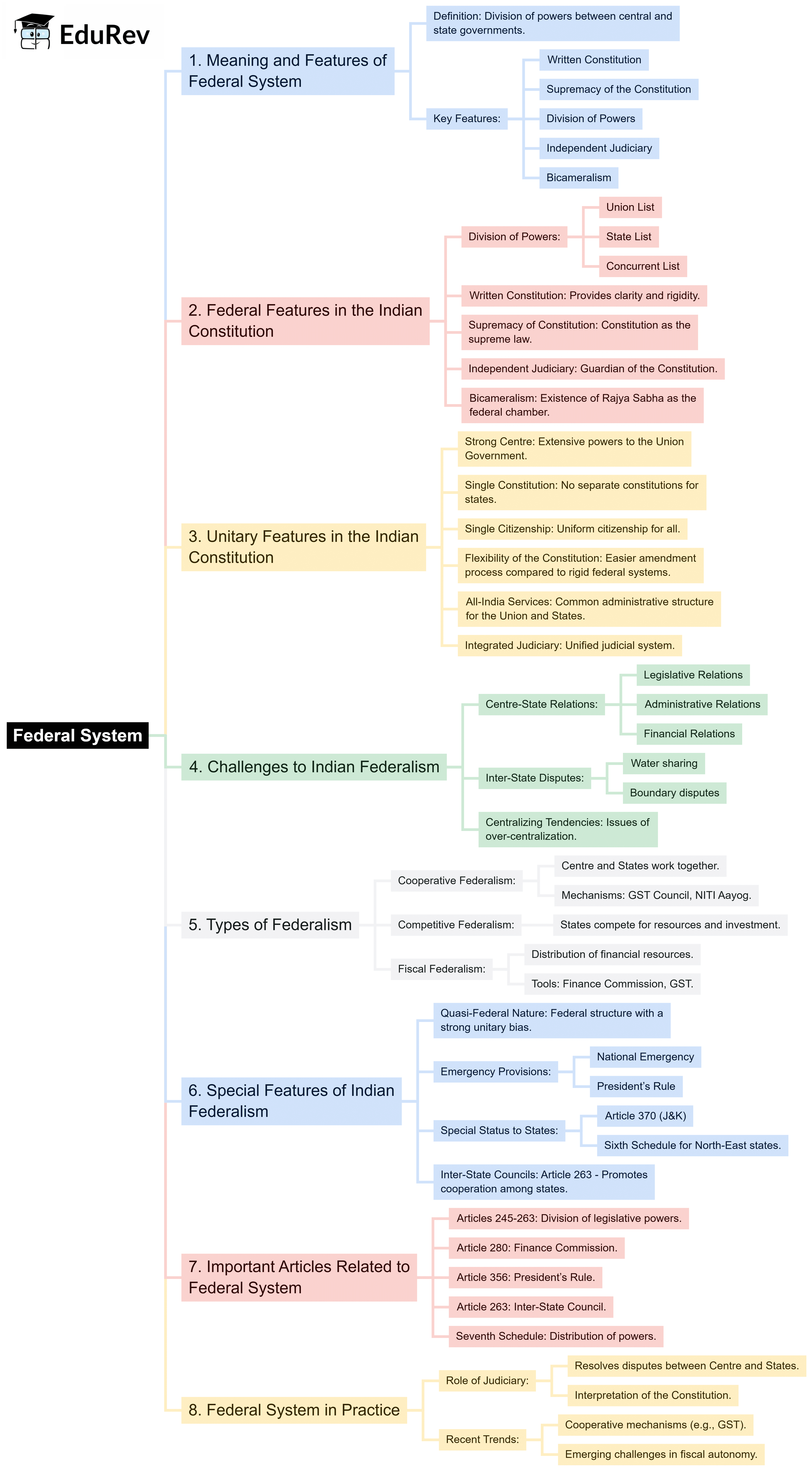UPSC Exam > UPSC Notes > Indian Polity for UPSC CSE > Mind Map: Federal System
Mind Map: Federal System | Indian Polity for UPSC CSE PDF Download

The document Mind Map: Federal System | Indian Polity for UPSC CSE is a part of the UPSC Course Indian Polity for UPSC CSE.
All you need of UPSC at this link: UPSC
|
150 videos|780 docs|202 tests
|
FAQs on Mind Map: Federal System - Indian Polity for UPSC CSE
| 1. What is a federal system of government? |  |
Ans. A federal system of government is a political structure in which power is divided between a central authority and various constituent units, such as states or provinces. This division allows for a balance of power, where both levels of government have specific responsibilities and autonomy, enabling them to govern effectively within their respective jurisdictions.
| 2. What are the advantages of a federal system? |  |
Ans. The advantages of a federal system include the promotion of diversity, as different regions can create laws and policies that reflect their unique needs. It also allows for greater participation of citizens in governance through local governments, enhances accountability, and provides a check on the power of the central government, reducing the risk of tyranny.
| 3. How does the distribution of powers work in a federal system? |  |
Ans. In a federal system, powers are typically classified into three categories: exclusive powers (held only by the central government), concurrent powers (shared by both central and state governments), and residual powers (held by the states). This distribution is usually outlined in a constitution, which specifies the powers and responsibilities of each level of government.
| 4. What is the role of the Constitution in a federal system? |  |
Ans. The Constitution plays a crucial role in a federal system by establishing the framework for governance, defining the powers of the central and state governments, and outlining the rights of citizens. It serves as the supreme law, ensuring that both levels of government operate within their designated powers and providing a mechanism for resolving disputes.
| 5. How does a federal system differ from a unitary system? |  |
Ans. A federal system differs from a unitary system in that a federal system distributes power between central and regional governments, allowing them to operate independently in certain areas. In contrast, a unitary system centralizes power in a single national government, which can create or abolish local governments at will, leading to less regional autonomy.
Related Searches





















